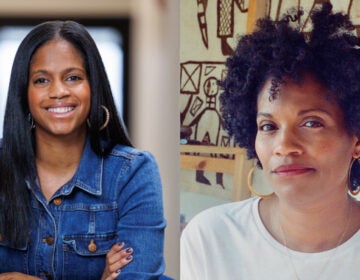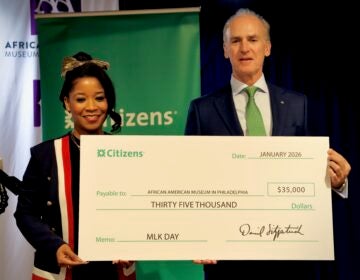Martin Luther King’s legacy lives on through Palmyra graduate Dr. Clarence B. Jones
When asked what MLK would think of today’s gun violence, Jones said: “He would put his head in his arms, and he would just weep.”
Listen 1:22
File photo: Martin Luther King Jr. acknowledges the crowd at the Lincoln Memorial for his "I Have a Dream" speech during the March on Washington on Aug. 28, 1963. Clarence B. Jones, 92, drafted alongside King the “I Have a Dream” speech, considered by many to be among the most iconic and influential speeches of all time. (AP Photo/File)
From Philly and the Pa. suburbs to South Jersey and Delaware, what would you like WHYY News to cover? Let us know!
Ninety-two-year-old Dr. Clarence B. Jones is a walking historian.
His words resonate with a generation that remembers what it was like to not have a seat at the table, a generation met with persecution and forced to fight for basic human rights.
The Palmyra High School graduate returned to the Garden State Wednesday to reflect on his life and friendship with civil rights leader Dr. Martin Luther King Jr. Jones described him as “the most extraordinary person in the history of this country.”
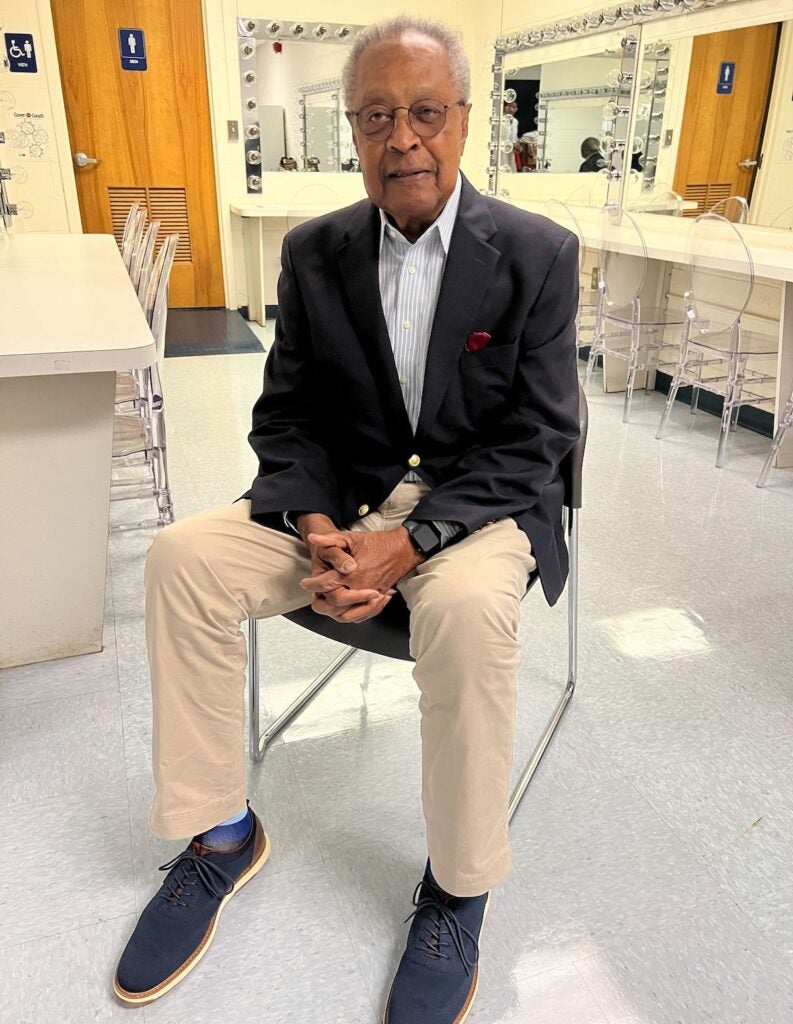
Jones spoke with WHYY News prior to taking the stage at Dennis Flyer Theater at Camden County College. He shared his memories as King’s advisor, attorney, and friend to an audience of nearly 100.
“I was 29 years old when I met Dr. Martin Luther King, Jr. for the first time, and for the next seven-and-a-half years until he was assassinated, I worked with him,” Jones said.
Jones assisted King by drafting his “I Have a Dream” speech, considered by many to be among the most iconic and influential speeches of all time.
“My role was accidental,” Jones said. “Dr. King must’ve been really tired. I thought, ‘Why was he reciting the draft that I gave him unless he was so tired?’”
Jones said King recited the first seven-and-a-half paragraphs that he wrote.
King delivered the speech — a resounding cry for racial equality — at the March on Washington for Jobs and Freedom on Aug. 28, 1963 at the Lincoln Memorial to a crowd of more than 200,000 civil rights supporters.
During his time as advisor, Jones also counseled King to write to President John F. Kennedy regarding the Cuban Missile Crisis.
In 1963, King was arrested for peaceful protests in Birmingham, Alabama. It was there he would handwrite a letter about injustice and pass it along to Jones to sneak out of his cell.
Jones was able to release the “Letter from Birmingham Jail” to the public, giving King a voice while behind bars.
Jones said King would be both happy and sad to see the state of Black America today.
He pointed to the passage of the Civil Rights Act and Voting Rights Act as major milestones.
“He would be happy to see the extent of which subsequent generations, basically, African Americans have been able to build on the platforms and take advantage in ways that were not possible before the passage of those acts,” said Jones.
His biggest frustration is what he referred to as “Black-on-Black violence,” a term advocates say has long been used by white supremacists to promote the false idea that Black people are inherently more violent.
Though Black people are disproportionately impacted by gun violence, a 2017 Department of Justice report found that a majority of most violent crimes are committed by people who are the same race as their victims.
“I have no doubt that [King] would share with me my concern which I call, we are existing in the midst of Black killing fields. Gun violence is out of control,” said Jones.
He became emotional, pausing to say, “It is the single greatest challenge to his legacy.”
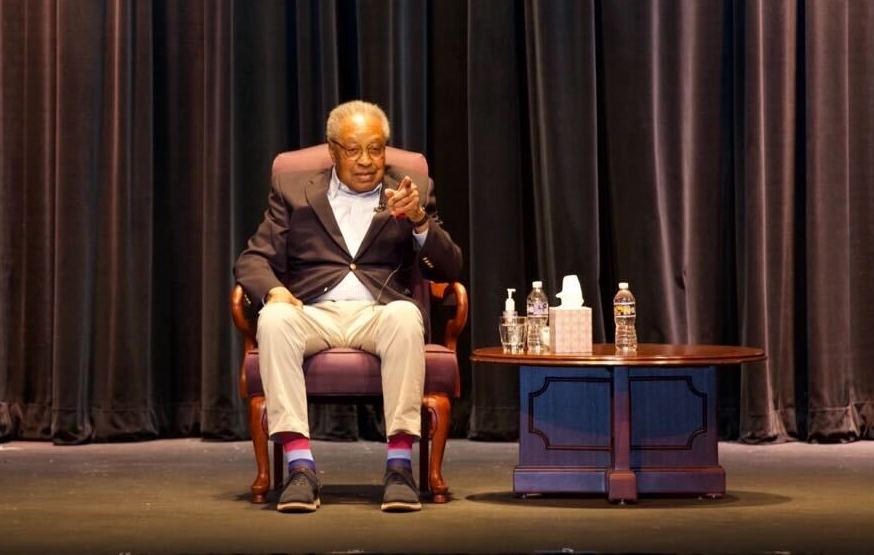
“The sheer absurdity that we would come all this distance out of slavery, and we would end up with a substantial number of us killing one another. He would put his head in his arms, and he would just weep.”
Jones has made it his mission to speak out against that violence to young people while he continues to share the struggles and sacrifice of the Civil Rights Movement.
He says he will always remember the global impact that King had, and still has.
“In 12 years and four months from 1956 to April 4, 1968, with the exception of the Emancipation Proclamation and the presidency of Abraham Lincoln, Martin Luther King Jr. may have done more to achieve political social justice, civil rights in our country, more than any event or person in the previous 400-year history of the United States.”
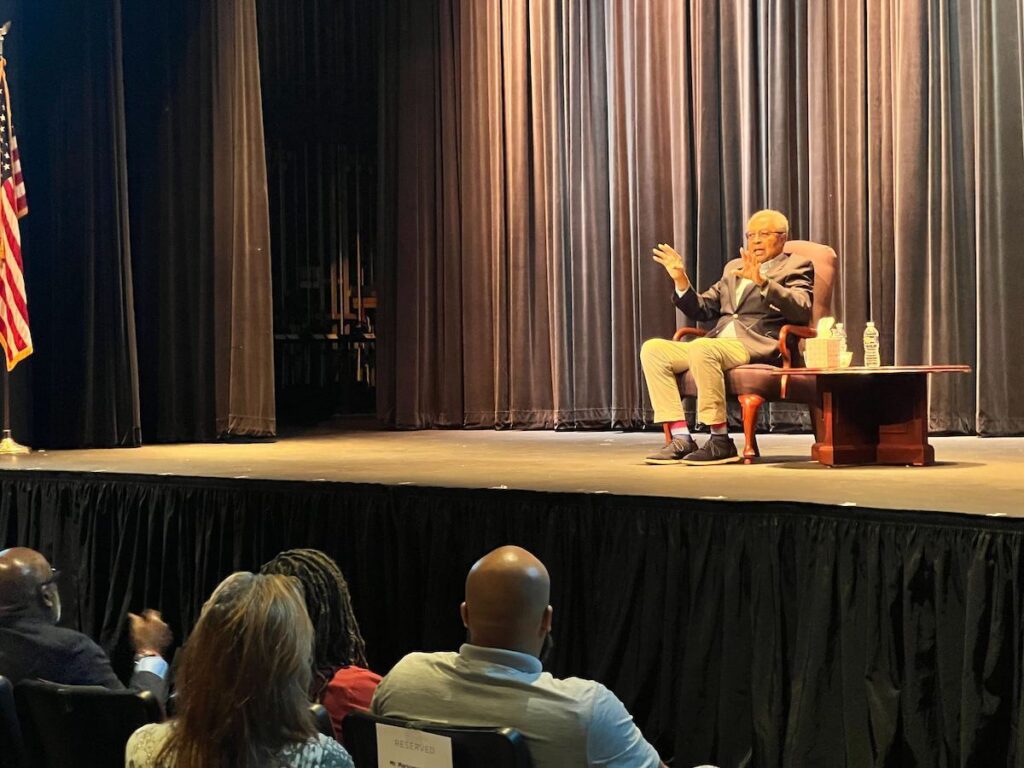
Jones founded the Clarence B. Jones Institute for Civil Advocacy in Palmyra in 2017.
The nonprofit invokes community empowerment and compassion through civic service, research, and education.
Jones’ life story and legacy is detailed in a new book, “Last of the Lions: An African American Journey in Memoir.”

Get daily updates from WHYY News!
WHYY is your source for fact-based, in-depth journalism and information. As a nonprofit organization, we rely on financial support from readers like you. Please give today.




